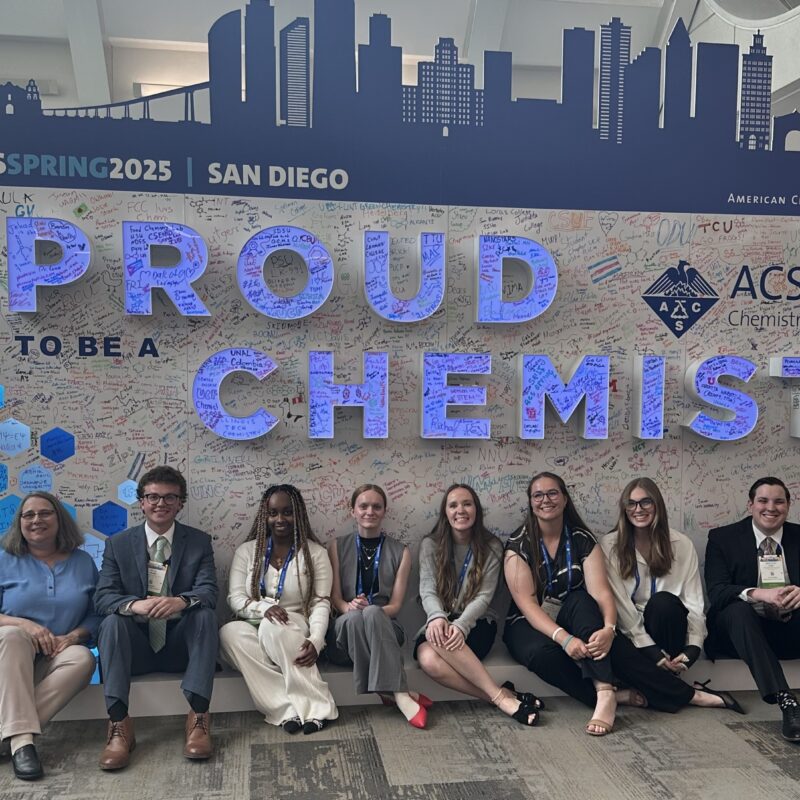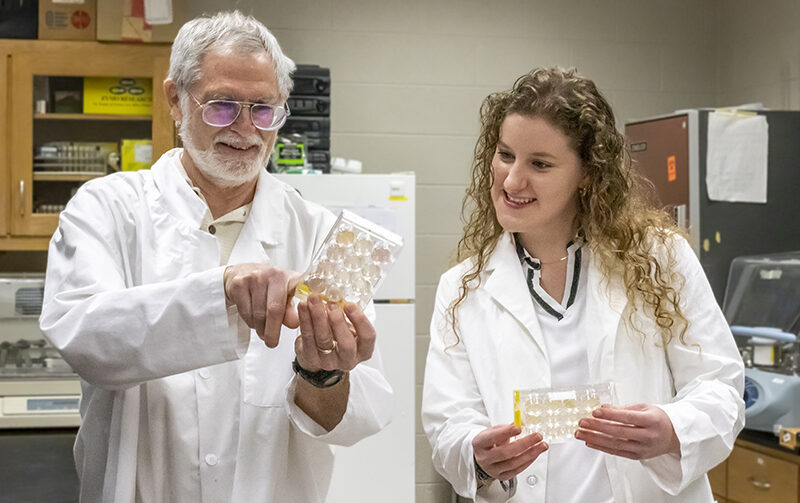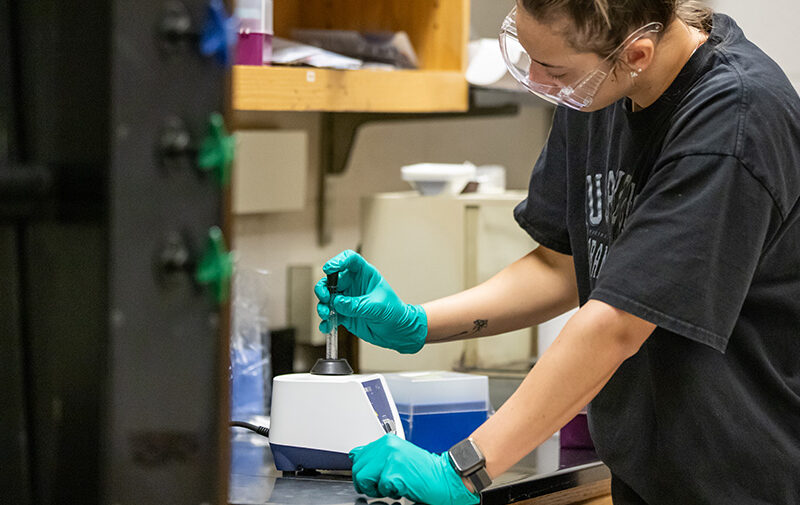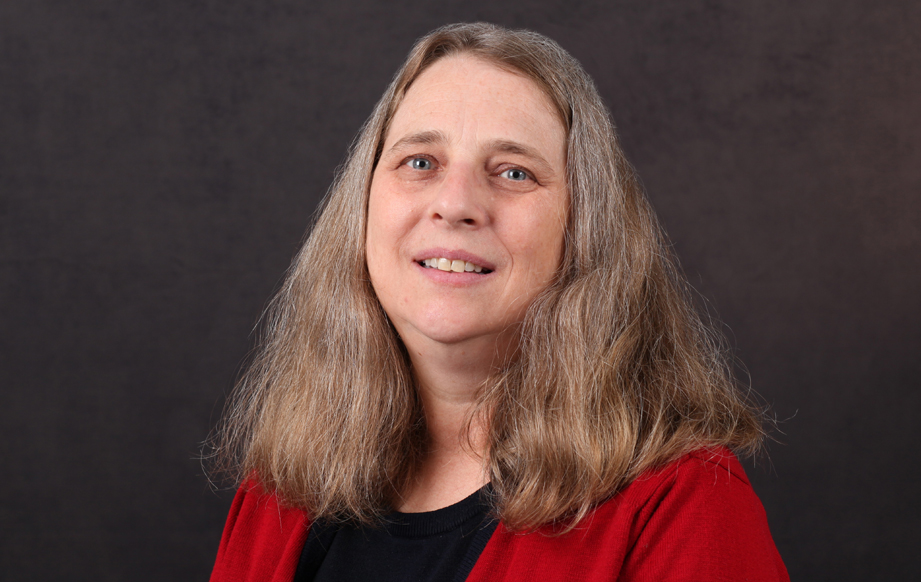Earn your degree in chemistry
The chemistry program provides a strong foundation in the core areas of chemistry, with opportunities to explore specialized topics through advanced coursework and hands-on laboratory experience. Students build analytical and problem-solving skills while working closely with faculty on research and presentation opportunities.
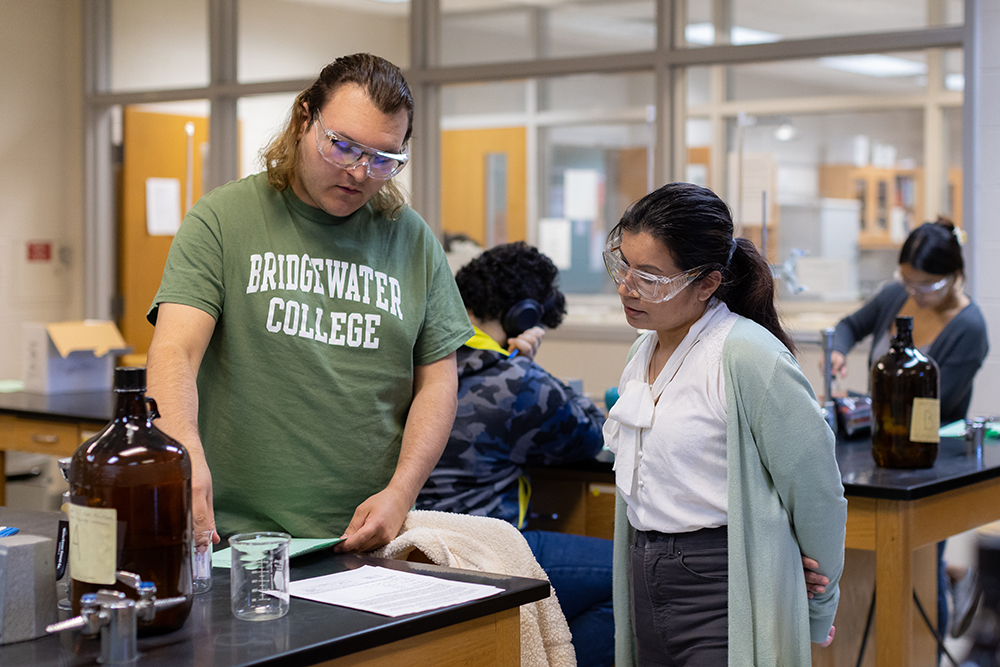
What to Expect as a Chemistry Major
- 47-50 credit hours of courses designed to provide a solid foundation in the basic areas of chemistry.
- Students get hands-on experience with working with instrumentation and participating in research.
- A close-knit department where students get a high degree of interaction with knowledgeable faculty.
Explore Biochemistry Courses
Students build a firm understanding of chemical principles in general chemistry (first year) and organic chemistry (second year). In the junior and senior years, students take classes from each member of the department who specialize in different areas of chemistry, resulting in chemistry graduates who are well-prepared for their career.
Forensic Chemistry
CHEM-385
This course focuses on the chemical techniques that are used in forensic sciences. Content includes a brief historical context, advanced data processing, instrumental techniques, and an overview of drug and food analysis.
Instrumental Analysis
CHEM-380
Exposure to methods of quantitation, signal-to- noise enhancement, instrumental design and function, methods of spectroscopy, chromatography, and mass spectrometry.
Medicinal Chemistry
CHEM-362
This course teaches the basic concepts of drug structure, interactions, and metabolism. Drug design, development and synthesis, structure and physicochemical properties of drugs and their targets, drugs’ mechanism of action, and the body’s response are also covered.
Required Courses Meet the Faculty
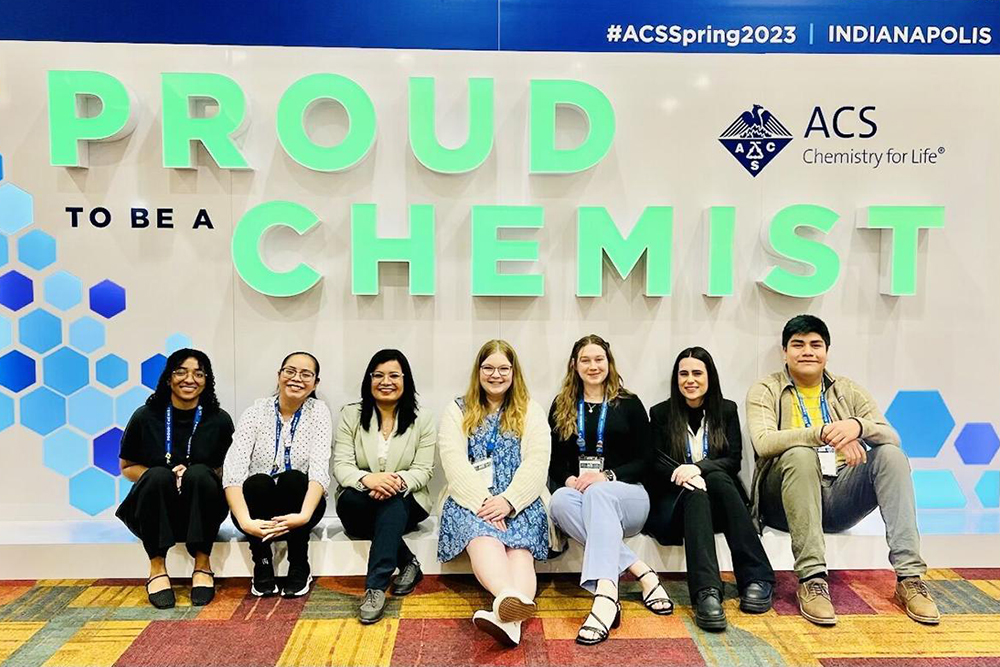
Research
The Department of Chemistry and Biochemistry has high rates of participation in research experiences for undergraduates.
And as a senior, present your research at the undergraduate research symposium sponsored by the Virginia Section of the American Chemical Society. Non-presenting students also have the opportunity to attend these conferences.
Interested in teaching chemistry?
You can also earn a teaching endorsement in chemistry in conjunction with the teacher education program.
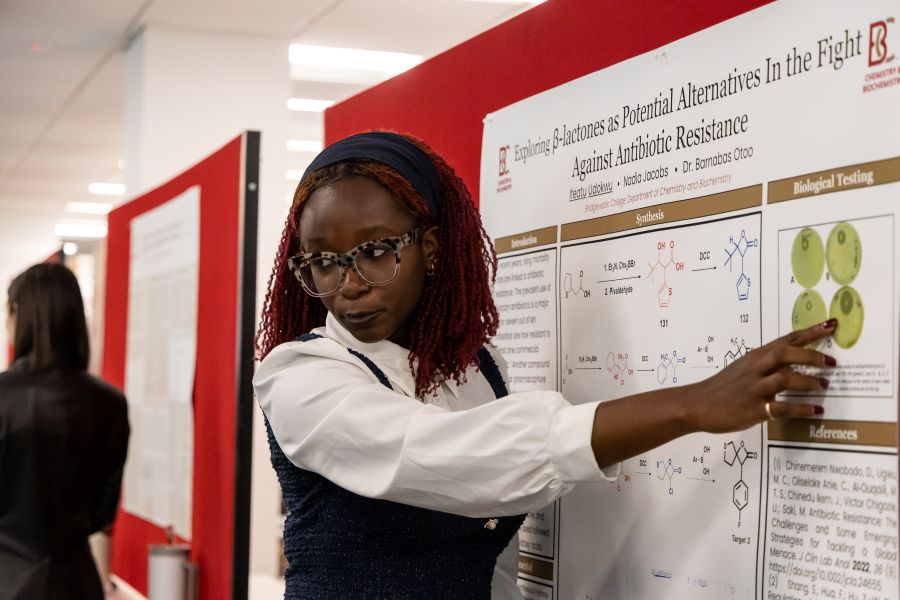
Like many BC graduates, you might enter graduate schools such as:
- Boston University
- George Mason University
- Georgetown University
- University of Illinois-UC
- University of North Carolina-Chapel Hill
- Shenandoah University
- University of Oregon
- University of Tennessee
- University of Virginia
- West Virginia University
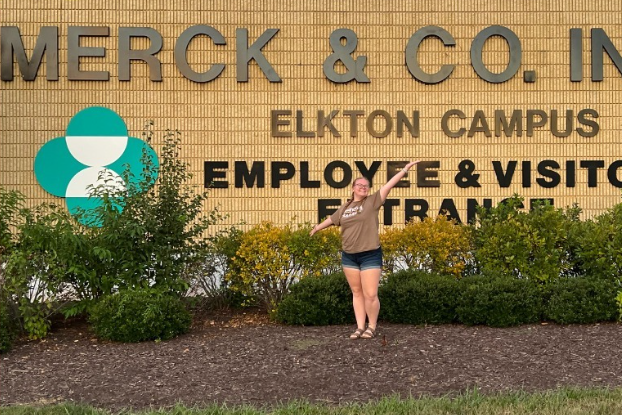
The Naval Research Enterprise Internship Program (NREIP) gives academically talented college students, graduating seniors, and graduate students pursuing STEM careers the opportunity to learn about Naval research and technology while receiving first-class mentoring by top scientists and engineers. Recent BC students have been successful applicants in this program.
Through the Martin Science Research Institute, student and faculty teams receive up to $5,000 to conduct a summer research project in the natural sciences. A stipend and free housing on campus enables students to make their summer job one of research and exploration. You’ll be guided by faculty in an area they know well and have opportunities that go way beyond a typical class.
What Can You Do with a Chemistry Degree?
A degree in chemistry prepares students for careers across industries. Graduates pursue roles in environmental protection, field analysis, forensics, government, higher education, law, secondary education, technical writing and editing, water and wastewater studies, and more.
- Enzymologists
- Lab Manager
- Quality Control Technician
- Drug Product Development
- Forensic Scientist
- Research and Development Analyst
- Chemical Engineer
- Science Teacher
- Science Writer
- Environmental Chemist
- Health and Safety Officer
Chart your path
Learn more about career paths, employment and advancement in the field of chemistry from the American Chemical Society.
Want an inside look at the department?
Follow the department’s Instagram page. The main goal of the page is to showcase experiments done in labs, research projects, fun activities and the student experience. Social activities within the department include joining the chemistry and biochemistry club and Caffeine Before Chemistry, a weekly social gathering before classes.
Questions? Contact Us!
- Dr. Ellen M. Mitchell, Department Chair
- 540-828-5635
- emitchel@bridgewater.edu
Similar Programs
Consider double majoring, adding a minor, or focusing on a certain area of study.

